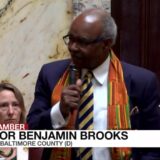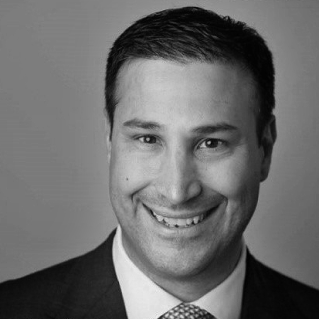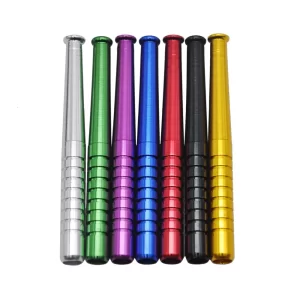The potential confirmation of Terry Cole as the new Administrator of the Drug Enforcement Administration (DEA) is renewing speculation about the future of cannabis rescheduling. Some focus on his prohibitionist past, while others hang on his promise to follow the science. Cue the commentary, much of it fueled by hyperbole and hopeful assumptions. Without a clear policy statement from the Trump administration, we’re left guessing about what comes next.
At this time, we only have Cole’s statements during his confirmation hearings, noting that cannabis rescheduling will be “one of my first priorities,” and that he will “look at the science behind it and listen to the experts,” giving the matter “careful consideration after consulting with appropriate personnel within the DEA.” Given Cole’s prior anti-cannabis statements, some expect him to maintain the status quo. Others argue that his commitment to science, as outlined in the Health and Human Services’ 252-page rescheduling recommendation, could lead to reform.
DEA Drug Threat Priorities: Cannabis Fades Behind Fentanyl and Cartels
Each year, the DEA publishes its National Drug Threat Assessment (NDTA), which outlines drug threats and provides intelligence to law enforcement, policymakers, and public health officials. It serves as a strategic roadmap for addressing drug-related harm in the U.S., and for any new Administrator, it is likely to shape early priorities.
The 2025 NDTA, like the 2024 edition, is focused squarely on the threats posed by synthetic drugs—primarily fentanyl and methamphetamine—and the transnational criminal organizations (TCOs) behind them, particularly Mexican cartels. During his confirmation hearing, Cole emphasized that combating fentanyl, and the cartels distributing it into the U.S., would be his top priority. This focus aligns with national priorities, including the March 2025 Annual Threat Assessment from the Director of National Intelligence, which for the first time ranked fentanyl and TCOs as the top threats to national security, surpassing North Korea, Iran, and Russia.
So, where does that leave cannabis rescheduling?
To answer that, we must examine what the DEA is—and isn’t—saying about cannabis. A comparison of the 2015 and 2025 NDTAs reveals a marked shift. In 2015, the word “marijuana” appeared more than 20 times in the Executive Summary alone, reflecting a significant focus. In 2025, it does not appear in the Executive Summary at all. In fact, overall mentions have declined by 75%.
This signals a realignment of enforcement priorities.
The 2025 NDTA places cannabis well behind synthetic drugs in perceived threat. The report discusses cannabis largely in the context of illicit cultivation operations by TCOs that exploit gaps between state and federal laws and use banned pesticides that pose environmental and public health hazards. The emphasis is now on the harms caused by TCOs, not cannabis use itself. Notably, the DEA explicitly links the same TCOs responsible for fentanyl trafficking to illicit cannabis operations. This narrative is consistent with the 2024 NDTA under Anne Milgram, which also emphasized the role of Mexican cartels and Asian organized crime groups.
Recently, this shift has been seen in enforcement actions from Maine to Oklahoma to California. In one large-scale multi-agency action in Southern California, the DEA Agent in charge acknowledged the legality of cannabis in California, while emphasizing the presence of human trafficking and pesticide use at the seized locations. It’s clear politicians and the DEA are acting with a greater sense of urgency to reign in this illicit TCO activity and rescheduling could be an opportunity for the DEA to enhance its efforts.
Also Read: Last Week in Weed: June 24- July 1st, 2025
Could Cannabis Rescheduling Help the DEA Target Illicit Operators?
While not full legalization, rescheduling cannabis to schedule III would recognize medical use and potentially enable more robust oversight. Importantly, it would allow the DEA to implement compliance and regulations under the Controlled Substances Act to distinguish between compliant, registered entities and illicit actors. The DEA could then use Schedule III’s registration protocols to better track operations, increasing visibility into illegal grows linked to TCOs. Additionally, a robust supply chain tracking system, such as those used in some legal markets, could be established to better identify illicit products in the state-legal channel, making it harder for TCO’s to launder illicit product. That kind of regulatory clarity could bolster both enforcement and industry legitimacy.
Any rescheduling effort would likely need to be accompanied by interagency coordination and guidance to prevent regulatory overlap or confusion, which could result in additional delays or overburdensome regulations.
The optimist in me sees an opportunity for the DEA to utilize rescheduling as a tool in accomplishing its priority to eliminate TCOs. The realist in me, however, will await policy signals from the administration to know more before making predictions.
The next 100 days will be crucial. If Administrator Cole is confirmed and stays focused on synthetic drugs and organized crime, while giving space for legal cannabis operators to function responsibly, he could usher in a modernized approach to drug policy—one that reflects the realities of 2025, not the fears of 1971.






























